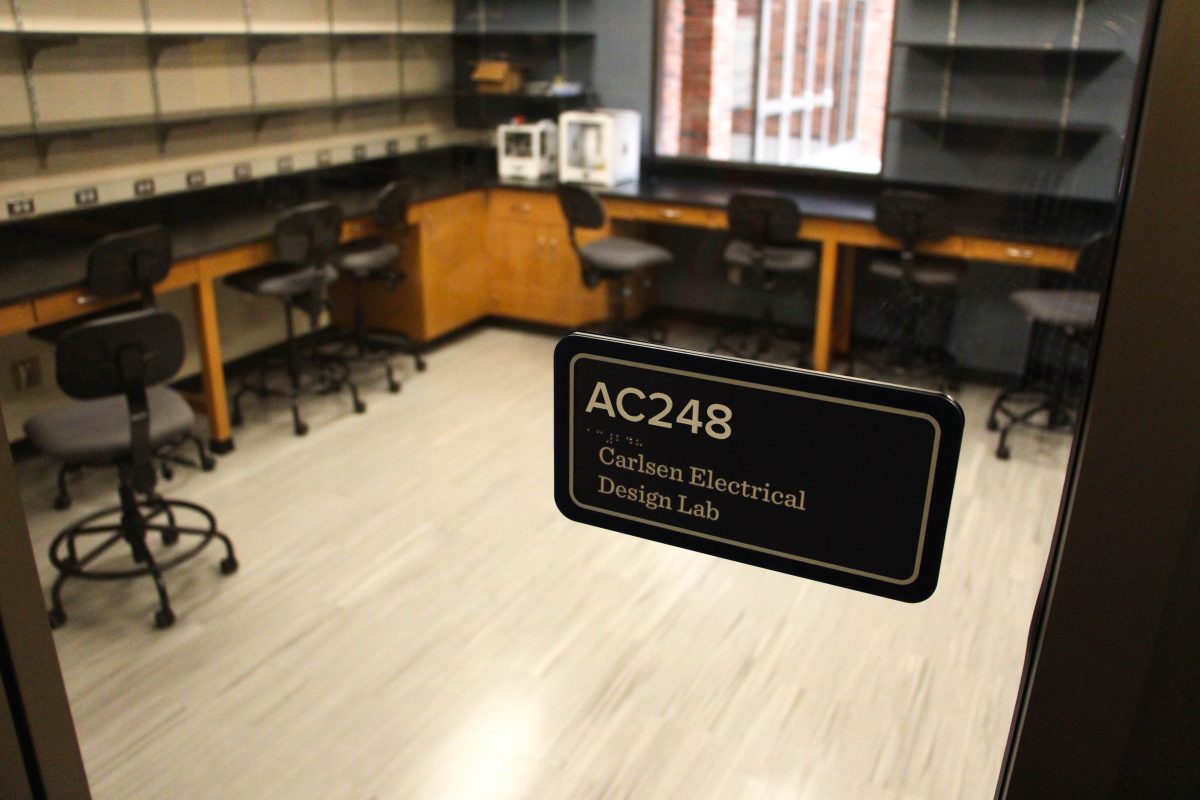Bethel adds lab space and new faculty for new programs.
By Aidan Ruch and Sarah Nelson
Bethel University Faculty Senate approved new majors last spring: Electrical engineering and neuroscience, the latest additions to 97 majors.
They were approved by the state and announced over the summer, with renovations in the department revealing an electrical engineering lab and a modern physics lab, replacing a few offices and the faculty lounge on the second floor of the Academic Center.
Before Bethel added electrical engineering as a Bachelor of Science degree, students navigated their academic careers through a 3+2 program by attending Bethel for three years to finish general education credits and finishing an engineering degree at a different university for the remaining two years.
While the 3+2 program still exists for those interested in electrical engineering, students now have the option of finishing their degree at Bethel in four years, versus transferring to another school and completing their engineering degree in five years.
This year, physics is the sixth most popular declared major among incoming freshmen – a surprising uptick compared to last year, according to Chief Institutional Data and Research Officer Dan Nelson.
The department also hired former Kettering University professor Karen Rogers as an associate professor in engineering. Rogers taught at Kettering in Flint, Michigan for 22 years. Rogers finished her undergraduate degree at Kettering and went on to the Massachusetts Institute of Technology for graduate work.
“Think about all of the new things that you’ve seen developed in your lifetime. What didn’t you have as a kid, that we now have, that doesn’t have electrical? There’s not much,” Rogers said. “Electrical engineering is very much where new things are happening.”
Psychology professor Adam Johnson proposed the idea for a neuroscience major in 2013 when William McVaugh was hired as a biology professor. The two began working to develop plans for neuroscience to be a multidisciplinary major between the biology and psychology departments.
They hired biology professor Melissa Cordes in 2015 and psychology professor Sherryse Corrow in 2016, completing the neuroscience team.
Corrow was attracted to teaching neuroscience at Bethel due to the research emphasis. According to Dr. Cordes, Bethel’s neuroscience major will be more research-focused than other schools in the Minnesota Intercollegiate Athletic Conference, such as University of St. Thomas that focuses more on psychology.
Since students could not declare neuroscience as a major until this year, the exact number of people interested in neurology as a major is difficult to gauge.
The neuroscience faculty talked to incoming and current students who are interested in neuroscience and have already declared a major in biology or physics. They found that most students planning to major in neuroscience plan to go to graduate school or medical school and seek to stand out from other biology majors.
“Bethel allows me the opportunity to do research one-on-one with the students,” Cordes said.
Cordes hopes that there will be an increase of people seeking out Bethel as a place to major in neuroscience.
The University of St. Thomas is hosting a conference this year called Mid-Brains where neuroscience departments from other small, midwest private universities gather. The conference will be hosted at Bethel next year.
“I would really like to see now that we have a neuroscience major, our students step up and say, ‘Look at what we’re doing at Bethel,’” Cordes said. “I am really hoping to come with a good showing, saying to the other students, Bethel is a major player in this now.”


















